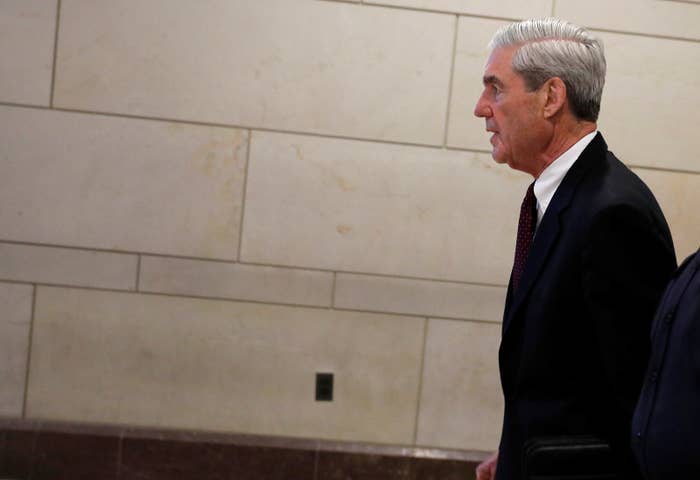
WASHINGTON — A federal judge has approved an extension for the grand jury convened by special counsel Robert Mueller’s office, the latest indication that Mueller’s work isn’t over.
US District Chief Judge Beryl Howell, who leads the federal district court in Washington, DC, confirmed Friday to BuzzFeed News that she had granted the extension; she declined to specify for how long. Under court rules, a grand jury can serve up to 18 months, and then a judge can approve an extension of up to six months if it’s “in the public interest.” The extension was first reported by CNN.
Mueller’s grand jury was impaneled on July 5, 2017, which would mean the 18-month term was set to expire in the next few days, the Washington Post reported Friday.
There were already clear signs that Mueller’s office wasn’t finished going into 2019. A fight over a grand jury subpoena issued to Andrew Miller, a former associate of Trump ally Roger Stone, is pending before a federal appeals court. A separate fight over a different grand jury subpoena that may have something to do with the Mueller investigation is before the US Supreme Court. Defendants who pleaded guilty in the probe — Trump’s former national security adviser Michael Flynn and former deputy campaign chair Rick Gates — haven’t been sentenced yet and are bound by cooperation agreements while they wait.
An active grand jury means that prosecutors could still pursue indictments. The grand jury hears testimony from witnesses and considers documents and other evidence before deciding whether to return an indictment. The grand jurors don’t sit every day, and they don’t all need to be there — federal grand juries have a maximum of 23 members, but only need 16 people present for a quorum. To return an indictment, only 12 out of 16 grand jurors have to vote yes.
The grand jury proceedings take place in secret, and grand jurors and prosecutors are bound by strict confidentiality rules. Witnesses are allowed to speak publicly about their experience, though, which is one way the public and the press have occasionally gotten a glimpse into what Mueller’s office is exploring. Fights over subpoenas have also become public, such as in Miller’s case.
When former Stone associate Randy Credico testified before the grand jury in September, he and his lawyers spoke with reporters after, and said the questioning focused on Stone — they declined to provide specifics, however. Lawyers for Jason Sullivan, who worked as Stone’s social media strategist during the 2016 campaign, spoke to reporters after Sullivan appeared before the grand jury in June. Stone has not been charged, but has predicted he might be at some point.

